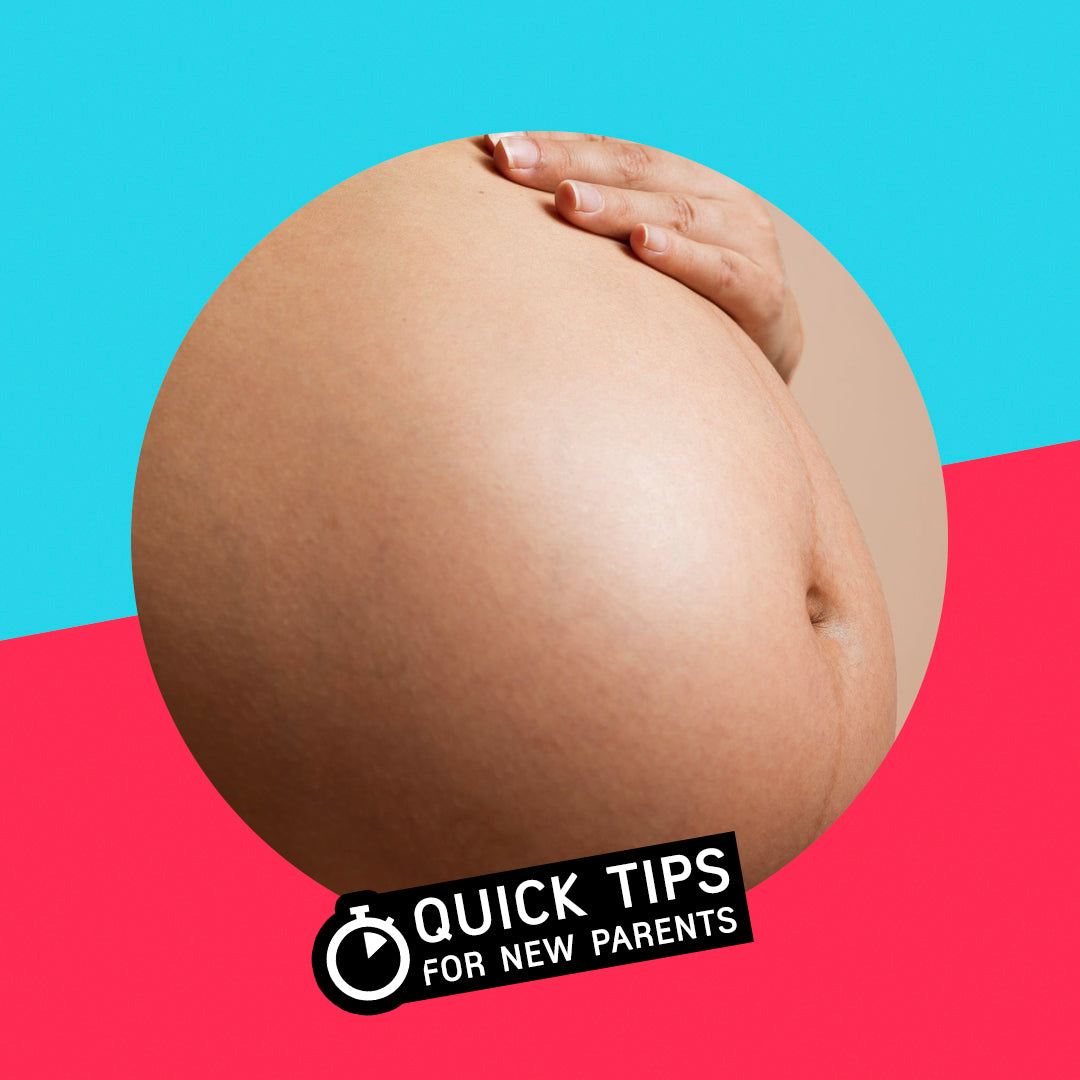Quick Tips for New Parents is our "channel" of bite sized advice for new or expecting parents. If you find this tip useful, why not check out our Tik Tok where we post similar videos daily.
A viewer asked:
"I'm 34 weeks pregnant and sleeping on my sides causes tightness in my abdomen. Any tips?"
The Answer In brief:
The expert advice here is to use a pillow or a cushion underneath your bump and a second one between your knees. This helps raise your abdomen and also support your back and hips.
The tightening in your abdomen could be due to Braxton Hicks contractions (when the womb contracts and relaxes). Now these are completely normal, and many women experience them during the second and third trimester.
But if the tightenings continue and you're less than 37 weeks, it's always best to contact your midwife or your maternity unit for advice just to be on the safe side.
The Answer In detail:
Pregnancy is a miraculous journey filled with excitement and anticipation, but as the weeks progress, discomfort can become a constant companion. If you're currently 34 weeks pregnant and finding that sleeping on your sides is causing tightness in your abdomen, you're not alone. In this blog, we'll explore some practical tips to help you find comfort and get a good night's sleep during these final weeks of pregnancy.
Pillow Support
Investing in extra pillows can make a significant difference in alleviating discomfort. Place a pillow between your knees to support your hips and reduce pressure on your lower back. You can also try placing a small pillow under your belly for added support.
Adjust Your Sleep Position
While sleeping on your sides is generally recommended during pregnancy to improve blood flow to the baby, you can experiment with different side positions. Research shows that after 28 weeks, sleeping on your back may double the risk of stillbirth. So, make it a habit to snooze on your side for the safety of your little one. Many doctors recommend sleeping on your left side for its potential to boost blood flow to the baby and the placenta.
Use a Pregnancy Pillow
Consider using a pregnancy pillow specifically designed to provide support during sleep. These pillows come in various shapes and sizes, offering support to the back, belly, and legs. Experiment with different positions until you find what works best for you.
Stay Hydrated
Dehydration can contribute to muscle cramps and tightness. Ensure you're drinking enough water throughout the day to stay hydrated, but be mindful of limiting fluid intake close to bedtime to avoid frequent bathroom trips during the night.
Gentle Stretching
Incorporate gentle stretching into your daily routine, especially before bedtime. Simple stretches can help release tension and improve flexibility. Focus on areas that feel tight, but avoid any movements that cause discomfort or strain.
Warm Baths
A warm bath before bedtime can be soothing and help relax your muscles. Be cautious not to make the water too hot, and ensure the bath is approved by your healthcare provider, especially if you have any complications.
Communicate with Your Healthcare Provider
If you're experiencing persistent discomfort or have concerns about the tightness in your abdomen, don't hesitate to discuss it with your healthcare provider. They can offer personalised advice based on your unique medical history and pregnancy.
As you navigate the final weeks of pregnancy, prioritising your comfort and well-being is crucial. Experiment with these tips to find the combination that works best for you. Remember, every pregnancy is unique, so listen to your body and consult with your healthcare provider for personalized guidance. A good night's sleep is essential for both you and your growing baby, and with a bit of experimentation, you can find the comfort you need during this exciting time.















